Jim Yates, attorney at Eastman and Smith, spent the morning with Chamber members, educating them on the changes to come. His presentation, titled “Final Exemption Rules Issued: Now What?” briefly covered information on legislation that voters will likely see on upcoming ballots (IE: minimum wage increases), but mainly focused on the exemption rules that will be enforced come December.
Executive
- Primary Duty = Managing
- Individual regularly directs the work of others (2 FTEs)
- Can hire & fire, or recommendations are given significant weight
- Primary Duty = office or non-manual work related to management or general business operations
- Exercises discretion and judgment in matters of significance
- Learned: primary duties require advanced knowledge
- Creative: primary duties require invention, imagination, originality or talent
- Meet one of exempt duties outlined above
PLUS (Meaning to qualify for EAP or HCE Status the employee must meet the qualifications of Executive, Administrative or Professional outlined above, and these additional requirements)
- Must be paid on a salary basis
- Not subject to deductions because of variations in quality or quantity of work
- Must meet minimum salary level
- $913 per week ($47,476 annually)
- Final HCE Salary Level: $134,004
- Salary level for EAP exemptions
- Salary level for HCE exemptions
- Automatic updates to new salary levels every three years
- Does NOT change duties test
- Does NOT change salary basis test
- Does NOT Address compensable “after hours” work
Bonuses, Incentives and Commissions
Bonuses, incentives and commissions may also be effected by the changes.
- Up to 10% of bonuses ($4,747.60) will count toward new salary level
- Must be paid quarterly to count
- Must pay 90% of weekly amount ($821.70) and can catch up additional amounts due at the end of each quarter
Yates anticipates many implications and consequences in the workplace as exemption statuses and/or salary levels change, including overtime implications, bonus and benefit changes, flexibility shifts, payroll changes, and a potential shift in employee morale. He cautioned attendees to approach these changes professionally and encouraged them to have an excellent communication strategy in place. He anticipates that HR professionals will spend more time on compliance and record keeping in the future, as well as need to update their payroll systems and job descriptions to avoid confusion.

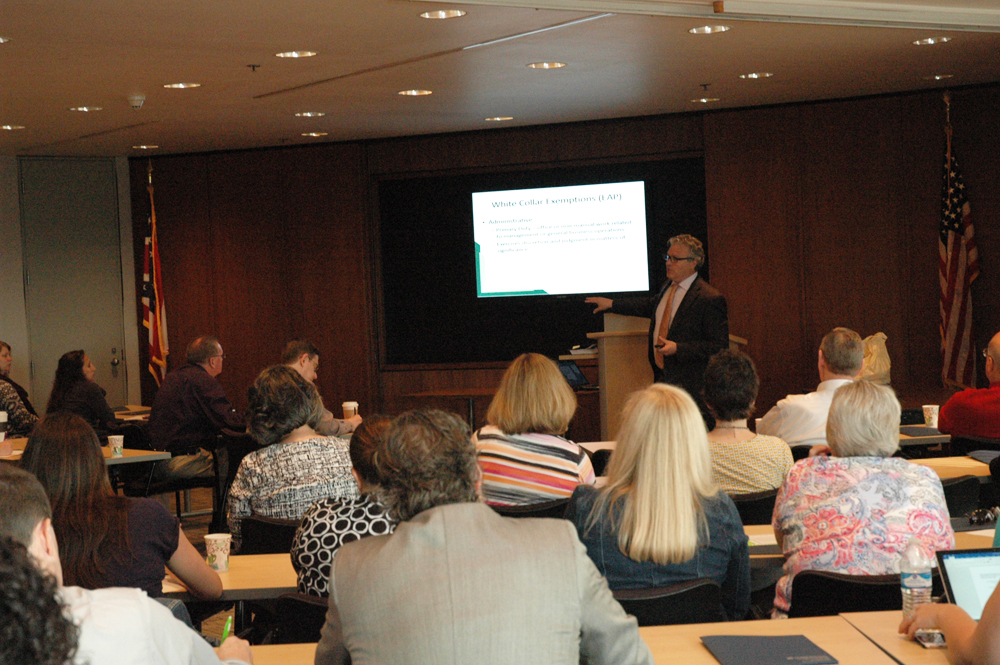
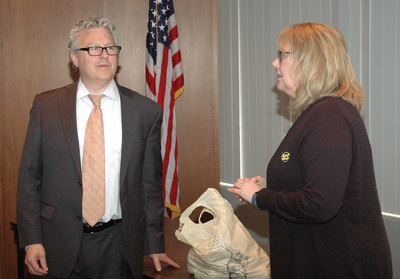

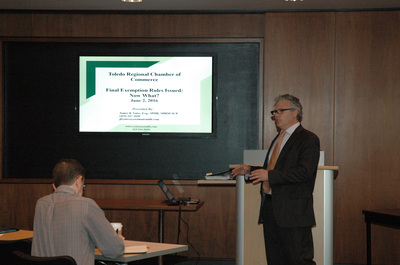

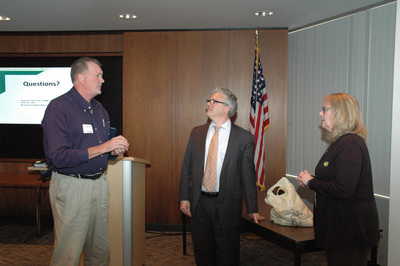
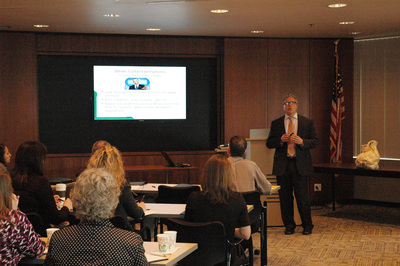
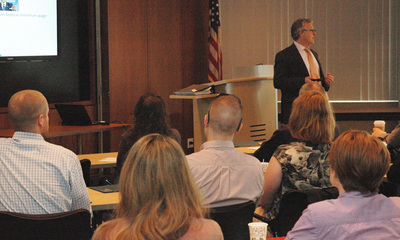
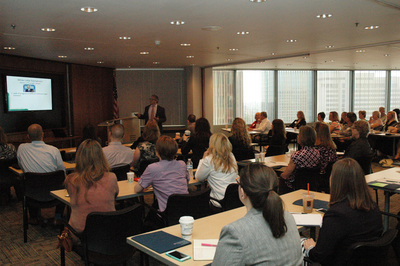
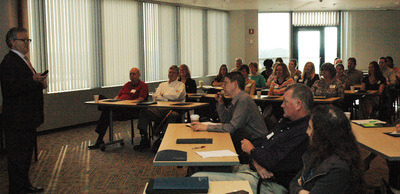
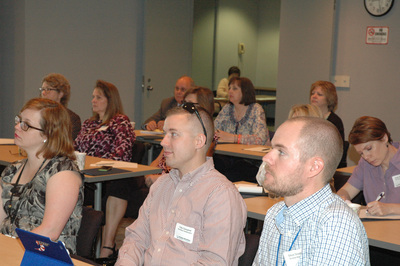
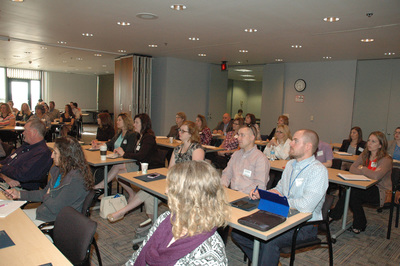
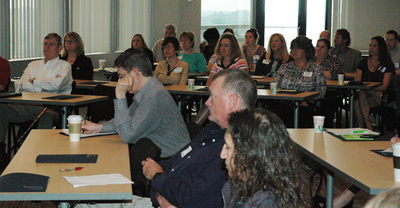

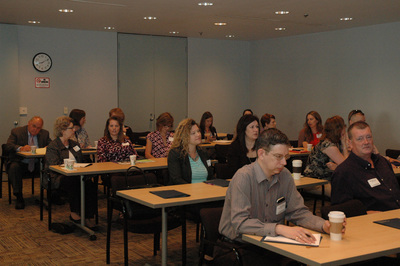


 RSS Feed
RSS Feed
